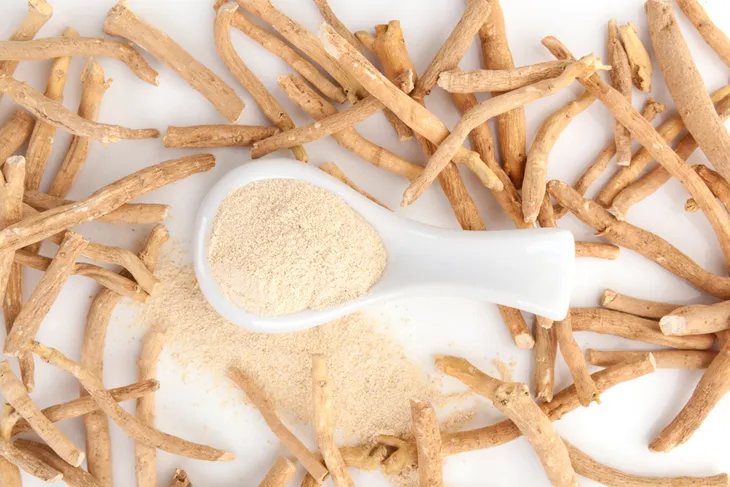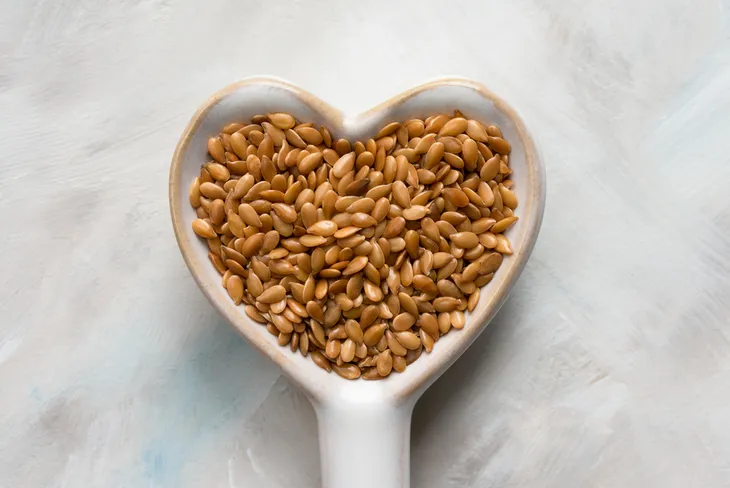Thyroid problems can have a major impact on your overall health, as it’s a big part of your endocrine system responsible for producing hormones. While a doctor may need to intervene and administer the right medication if your thyroid is overactive or underactive, there are other ways you can help it too (alongside the medications).
These self-help methods are techniques that may benefit not only your thyroid, but also your overall physical and mental well-being. So even if you don’t have a diagnosed thyroid problem, these 13 tips aren’t bad ones to follow each day…
Balance Your Diet
As WebMD points out, eating the right foods won’t cure your hypothyroidism (underactive thyroid), but it can improve how you feel, lower stress levels, and prevent disease.
The source says there’s “no special meal plan” for managing thyroid disease, but a balance to your diet will benefit you – that means not eating the same thing over and over again. Instead, try a wide range of fruits and veggies, and try to limit your intake of red meat (try seafood instead, suggests the source).
Get Moving
An inactive lifestyle is not going to help any part of your body, including your thyroid. Women’s Health Network explains there are studies that show thyroid hormones may increase along with your heart rate from exercise.
It says regular exercise “reminds your thyroid to stay alert,” as it has to activate when you’re being active. Exercise doesn’t mean you have to run a marathon – it can be walking, dancing, playing sports, and taking part in a yoga glass, it adds.
Try Ashwagandha Capsules
Try ashwa-what? If you’ve never heard of this, StyleCraze.com describes it as an “adaptogenic herb that can work wonders in balancing your thyroid hormones.”
The source says it’s actually primarily used to strengthen immunity, but can also help reduce stress and enhance stamina – therefore combating the fatigue and other symptoms of an underactive thyroid. It’s important to note that you should always talk to your doctor before taking a new supplement.
Consider Other Supplements
Dr. Axe agrees that 500-mg of Ashwagandha per day is a good way to go, but that you can also adapt other supplements including iodine (150 to 300-mg per day) or get iodine from natural sources such as fish, seaweed, and eggs.
Other supplements to consider in boosting thyroid function include selenium (200-mcg per day), L-tyrosine (500-mg twice per day), fish oil (1,000-mg daily), vitamin B complex (1-capsule per day), and a probiotic supplement, suggests the source.
Make Your Thyroid a Well-Oiled Machine
Aside from the vitamin and mineral supplements we mentioned, essential oils can play a role in improved thyroid health, according to Dr. Axe. These can be applied directly or diffused, adds the source.
The essential oils recommended by the source for hypothyroidism include 3-drops of frankincense oil (combined with 5-parts lemongrass oil and 5-parts clove oil) applied directly to the thyroid area at the base of your neck. Other combinations to try include lemongrass oil and myrrh applied to the thyroid as well as your big toes and wrists several times per day, and chamomile, frankincense and lavender oil diffused or added into a bath, it adds.
Try Acupuncture
Many people are turned off by the thought of acupuncture, because it involves placing needles in the skin. But remember, these are extremely thin needles placed in key areas by (hopefully) a trained expert, so any discomfort should be minimal.
WebMD says “complementary treatments” to other natural approaches include acupuncture, which it notes may improve your hypothyroidism symptoms and respond better to regular treatment. It also stimulates your immune system, adds the source. Acupuncture, yoga and meditation may all lower your stress levels and promote relaxation, it adds.
Settle For Nettle
Stinging Nettle is a plant that has a rather poor reputation for causing contact rashes, but apparently used as an ingredient in tea, it can have benefits for your thyroid. StyleCraze says to add two teaspoons of nettle tea into one cup of hot water, steep for about 10-minutes, strain it, and then add some honey (after letting it cool down a bit).
The source says despite its notorious name, stinging nettle is actually rich in vitamins, calcium, magnesium, and iodine, which is key to thyroid function. “The presence of iodine helps to reverse the iodine deficiency that may be responsible for causing hypothyroidism,” it adds. Just make sure to stay away from fresh stinging nettle leaves.
Get Sweet on Sugar-Free
Healthline explains sugar and other processed ingredients in your foods can cause increased inflammation in the body, which can interfere with the thyroid hormone conversion process. “This can make your symptoms and thyroid disease worsen,” it adds.
It says sugar can only boost your energy for a short amount of time, and that eliminating it from your diet can help you better manage energy levels, while limiting stress. The source acknowledges that cutting out sugar is no simple feat. “It’s not easy to adopt a sugar-free diet, but the benefit to your thyroid health may be worth it,” it notes.
Go Gluten Free
Many people – even those without Celiac disease, a condition in which the patient cannot process gluten found in grains – are going gluten free these days, and it turns out there could be some health benefits. Healthline notes it can be beneficial for those suffering from an underactive thyroid.
While the source admits there’s currently no solid research on this in relation to the thyroid, many people with underactive thyroids “do feel better after cutting wheat and other gluten containing foods from their diet,” it claims.
Seek Out Black Walnut Hull
You may have never heard of this “traditional remedy,” but that’s okay – now’s your chance to learn more about it. StyleCraze says just two to three drops of black walnut hull extract in a glass of water can improve digestion and reverse the effects of hypothyroidism.
The source says black walnut is known for its content of essential vitamins and minerals (and thyroid allies) including iodine, selenium, magnesium, as well as vitamins B and C.
Apply Remedies Gingerly
Now, ginger is something everyone has heard of, and it can apparently work some wonders for your thyroid. StyleCraze says you’ll need an “inch” of ginger, along with a cup of water and some honey.
It says to add the ginger to the water and let it steep for 5 to 10-minutes, after which you let it cool down and add the honey. Drink it as soon as you add the honey, it notes. The source says this works because ginger tea has “powerful anti-inflammatory properties” thanks to potassium, magnesium, and polyphenols like gingerol.
Plant Seeds of Healing
Flaxseed is apparently another easy natural remedy to try for an underperforming thyroid. StyleCraze says you’ll need one tablespoon of powdered flaxseeds, along with one glass of milk or fruit juice.
Toss a teaspoon of the seed into the glass of milk or juice, and mix well before drinking it down, says the source. It notes that flaxseeds are a rich source of a particular omega-3 fatty acid called alpha-linolenic acid, which it says can stimulate production of thyroid hormones. Drink this solution one or two times daily.
Focus More on Relaxing and Emotional Health
Women’s Health Network says you should take time to relax whenever you can, as stress can have a negative impact on your thyroid due to cortisol (the stress hormone) interfering with hormone production. Meditation, deep breathing, and even “strategic napping” can help you relax more, it adds.
The source also says to pay more attention to your emotional health. “Many ancient cultures believed that thyroid function is negatively affected if you tend to bottle up your emotions or hold your tongue when you have something important to say,” it notes. Taking some time out for yourself, writing down your thoughts and feelings, and taking part of yoga are good ways to get back in touch with your emotions, it adds.
















